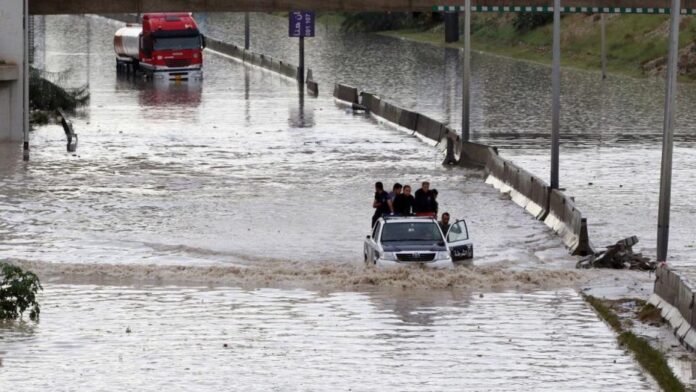Nigeria is bracing itself for a three-day spell of heavy rainfall, with states such as Lagos, Adamawa, Anambra, Bayelsa, and the Federal Capital Territory (FCT), among others, set to experience significant downpours. The Nigerian Meteorological Agency (NiMet) has issued a warning highlighting the potential risks associated with the impending rainfall, including flash flooding, riverine flooding, soil erosion, thunder and lightning, as well as strong winds.

The forecast, which covers the period from July 9th to July 11th, paints a picture of varying intensities of rainfall across different regions of the country. States such as Bauchi, Kaduna, Nasarawa, Plateau, Enugu, Ondo, Osun, Delta, Edo, and Akwa Ibom are also expected to be affected by moderate to heavy rainfall. In contrast, regions like Borno, Gombe, Niger, Kwara, Oyo, Ekiti, and Kogi may experience lower levels of rainfall, with minimal risk of hydro-meteorological hazards.
The implications of the anticipated heavy rainfall are far-reaching, with the potential for displacements of people due to floods, outbreaks of water-borne diseases, and damages to critical infrastructures such as roads and bridges. These outcomes underscore the importance of preparedness and mitigation measures to safeguard lives and properties in the affected areas.
NiMet has highlighted specific regions where the impact of the rainfall is expected to be more pronounced. States like Adamawa, Kano, Jigawa, Ebonyi, Imo, Abia, Rivers, Bayelsa, Ogun, and Cross River are among those slated to experience moderate to heavy rainfall. Conversely, areas such as Katsina, Yobe, Zamfara, Kebbi, and Osun may see lower levels of rainfall, reducing the risk of hydro-meteorological hazards in those locations.
Of particular concern are the expected very strong winds in parts of Yobe and Borno states, with strong winds also anticipated in Sokoto, Zamfara, Katsina, Kano, and Gombe states. These weather conditions highlight the need for vigilance and caution, especially in areas prone to wind-related risks.
As Nigeria prepares for the upcoming heavy rainfall, authorities and communities alike are urged to take proactive measures to mitigate the potential impacts. From ensuring proper drainage systems to raising awareness about safety protocols during storms, collective efforts are essential in minimizing the risks posed by the inclement weather.
The forecasted heavy rainfall serves as a reminder of the vulnerability of certain regions to extreme weather events and the critical importance of effective disaster management strategies. By heeding the warnings issued by NiMet and taking appropriate precautions, Nigeria can navigate through this period of inclement weather with resilience and preparedness.




